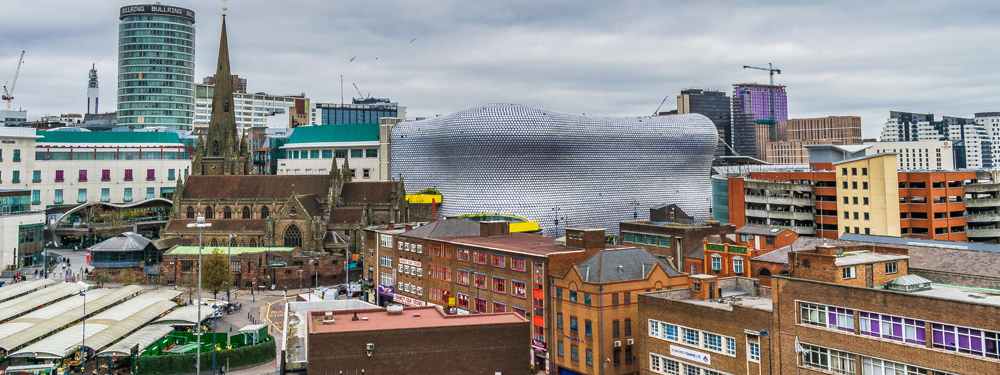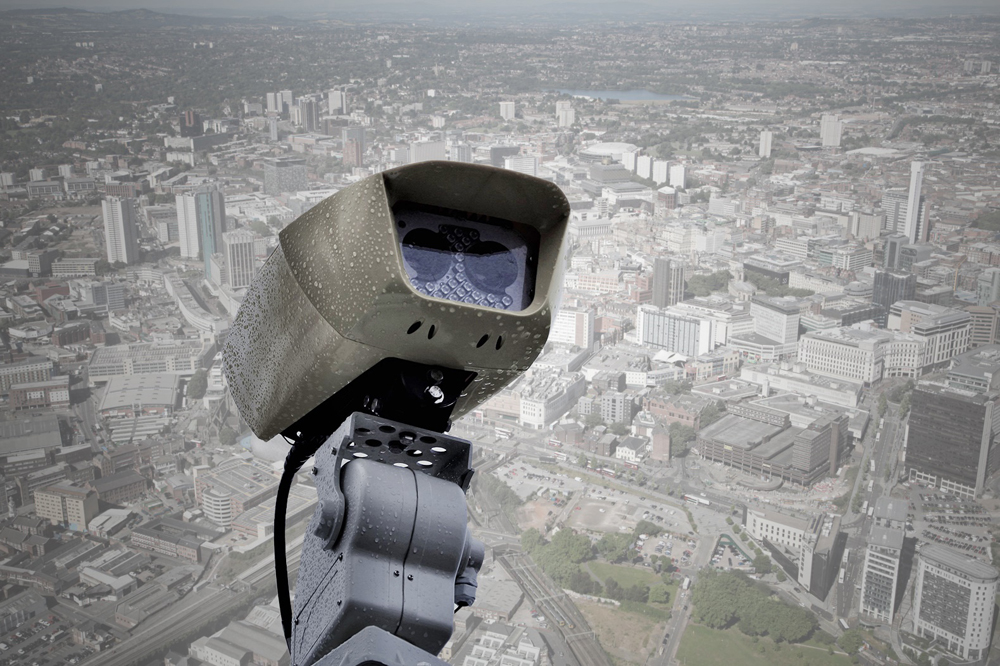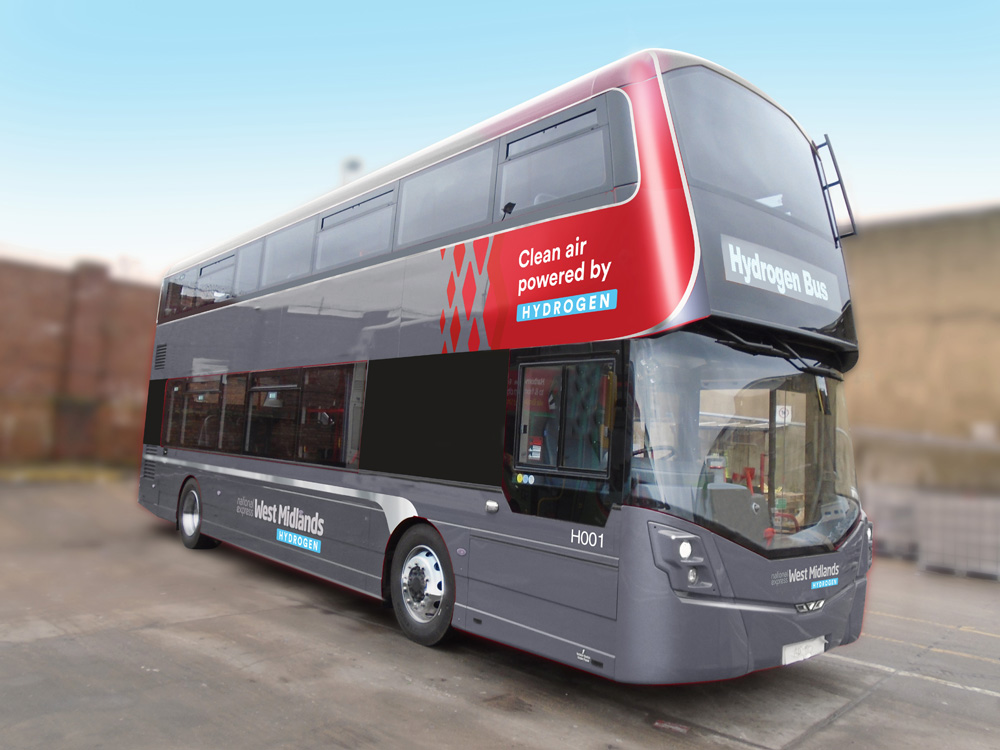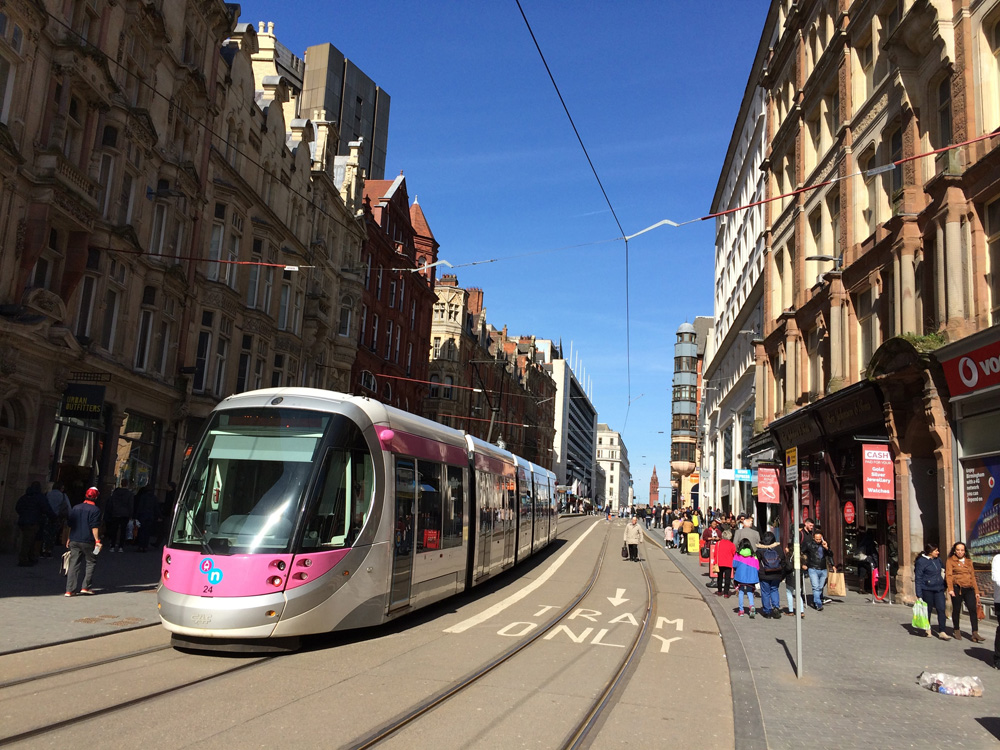
Birmingham’s Clean Air Zone (CAZ), mandated by the UK government and launched in June, covers an area inside the city’s inner ring road (A4540 Middleway). Once the centre of the UK’s industrial West Midlands heartland, Birmingham used to be a byword for smoke-belching factories. But now the city is charging the most polluting cars and large goods vehicles £8 per day to use its inner roads - and coaches and heavy goods vehicles will have to cough up £50 per day.
Despite some opposition from local campaigners, the CAZ’s target is to reduce levels of NO2 in the air to a maximum average of 40µg/m3 as soon as possible – and after that, Birmingham City Council says, “to lower the amount of NO2 and particulate matter in the air as far as we can”.
The council’s #BrumBreathes project (‘Brum’ is a local nickname for the city) tells drivers – via more than 300 signs installed on the road network surrounding the boundary – that they are approaching the zone. Vehicles that do not meet emission standards will be detected by an automatic number plate recognition system.
ANPR cameras 'to capture 200,000 vehicles per day'
Siemens Mobility has installed 67 Sicore II ANPR cameras, which will identify and register every vehicle that enters the CAZ, 24 hours a day, 365 days a year. The company says: “It is anticipated that the system will capture details of around 200,000 vehicles per day, a small percentage of which are expected to be contraventions.”
City councillor Waseem Zaffar, cabinet member for transport and environment, says: “Poor air quality remains a public health risk and a CAZ provides the city with an effective tool for tackling this issue in the shortest possible time.”

100 or so miles to the south, UK capital London’s Ultra-Low Emission Zone recorded a 44% fall in NO2 emissions from road transport after 10 months – and Birmingham will hope for similar results.
As part of the launch, the council is providing a range of financial incentives, including a £10 million fund to help small and medium-sized enterprises prepare for the CAZ. Additionally, private hire drivers may be eligible for up to £1,000 towards a compliant Euro 4 petrol or Euro 6 diesel vehicle. They can also apply for a scheme which offers up to £2,000 towards the purchase or lease of a hybrid vehicle or plug-in hybrid electric vehicle that is not eligible for the government’s plug-in car grant.
This financial aid has proved popular, with CAZ support grants for taxis passing the £1m mark. The grant scheme is part of a larger £35m package of financial incentives to support the transition to cleaner air with almost £15m dedicated to the taxi community.
Support measures include £5,000 (spread over four years) towards the running costs of an ultra-low emission taxi and a £5,000 one-off payment towards a clean vehicle retrofit accreditation scheme solution for an existing vehicle.
Beyond taxis: hydrogen
Last September, Birmingham launched a taskforce to draw up a plan setting out how it will tackle climate change and become carbon neutral by 2030.
As part of this, the council purchased 20 hydrogen double-decker buses to operate in April 2021. Birmingham claims hydrogen buses cover 300 miles on a single tank and can be refuelled within 10 minutes – each bus is expected to save up to 79.3 tonnes of carbon dioxide emissions per annum.
“This pilot is a significant step towards our net-zero carbon target and will provide Birmingham with a leading role in informing debate on supportive policies for zero-emission public transport at a local and national level,” Zaffar adds.
The Wrightbus fuel-cell buses will be operated by National Express with the aim of deployment on the new A34/A45 Sprint Route, an uninterrupted cross-city route, connecting Walsall town centre to Birmingham Airport and the suburb of Solihull.

Tom Stables, National Express UK managing director, says the service will provide an understanding of which routes lend themselves to hydrogen buses and what the mix of vehicles in the fleet should be going forward.
“These new buses will be fitted out in our top-spec Platinum range, so customers will also benefit from free Wi-Fi, USB chargers and extra legroom,” he continues. “Because there is no engine, they are super-quiet. And of course, all that comes out of the exhaust is water vapour.”
Birmingham City Council will collaborate with ITM Power to produce and dispense the hydrogen fuel from a hub at Tyseley Energy Park.
The council is funding the project alongside the Office for Zero Emission Vehicles, Greater Birmingham & Solihull Local Enterprise Partnership and the Fuel Cells Hydrogen Joint Undertaking, which receives support from the European Union’s Horizon 2020 research and innovation programme, Hydrogen Europe and Hydrogen Europe Research.
As cities emerge from lockdown, Kapsch TrafficCom revealed in its Mobility Report 2021 that world car emissions are rising as vehicle miles travelled rebound to pre-pandemic levels. While this may be part of the price we pay for returning to the ‘old normal’, Birmingham’s approach underscores the importance of using policy and technology in the ongoing fight against air pollution.
What public transport incentives are part of CAZ scheme?
As part of the Birmingham initiative, the council has unveiled a £10m vehicle scrappage and travel credit scheme to support those working in the CAZ who earn less than £30,000 per annum.
Successful applicants must have been the registered owner or keeper of a non-compliant vehicle since 10 September 2018 and work at least 18 hours per week at premises within the CAZ.
In return for scrapping a vehicle, they will receive a £2,000 grant which can be used on a ‘travel credit’ or to purchase a vehicle that meets the emission standards.
The travel credit can be applied to a Transport for West Midlands (TfWM) Swift Card, which is redeemed against public transport travel on trains, buses and the Metro. Alternatively, the grant can be used to purchase a CAZ-compliant vehicle from Motorpoint’s branches in Aston and Oldbury.
Councillor Waseem Zaffar says: “The CAZ will help improve air quality within our city and the Vehicle Scrappage and Travel Credit Scheme helps tackle the source of the problem by removing the most polluting vehicles from our roads. We also need to encourage more people to use public transport as an alternative to the car, especially for shorter journeys, and that is why I am particularly excited by the partnership with TfWM.”

Those interested in the scheme will be able to submit an application and if approved, will be passed to Motorpoint to arrange for their vehicle to be scrapped. The applicant will then receive £2,000 credit off the price of a car from Motorpoint, or a £2,000 credit on a Swift travel card to be used on West Midlands trains, buses and Metro trams.
The travel card credit will typically cover the cost of an average commute for two to three years.
Councillor Ian Ward, in his capacity as West Midlands combined authority portfolio holder for transport said: “The Swift card offer represents a golden opportunity for people to make that shift from car to public transport which will help improve our air quality , reduce congestion on our roads and help us to achieve our #WM2041 target for a net-zero carbon region.
“Transport for West Midlands and our transport operators are investing in improving public transport throughout the region – including extending the Metro tram to Edgbaston later this year and opening up the Sprint rapid bus corridor on the A34 and A45. So there has never been a better time to swap a costly, high-polluting older car for a £2,000 Swift card and give public transport a go.”











